This article was co-authored by Joshua U. Klein, MD, FACOG. Dr. Joshua U. Klein is a board certified Reproductive Endocrinologist, an Assistant Clinical Professor at the Icahn School of Medicine at Mount Sinai, and the Co-Founder of Extend Fertility. He specializes in IVF, egg freezing, infertility, fertility preservation, artificial insemination, and treating polycystic ovarian syndrome (PCOS). Dr. Klein has been published in numerous peer-reviewed academic journals such as Science, Fertility and Sterility, and Obstetrics and Gynecology. He holds a BA in English from Yeshiva University and an MD from Harvard Medical School.
There are 12 references cited in this article, which can be found at the bottom of the page.
This article has been viewed 52,880 times.
Polycystic Ovary Syndrome (PCOS) is a hormonal disorder that can affect women throughout their reproductive years. Your menstrual cycle gets thrown off and you may become less fertile. The body also produces an excess of the male hormone androgen, resulting in abnormal hair growth, acne and weight gain. Additionally, women with PCOS face an increased risk of developing type 2 diabetes and heart disease. There is no cure for PCOS, but there are many treatments you can use to dramatically improve your symptoms.[1]
Steps
Lifestyle Changes
-
1Lose weight. Weight management is important for women with PCOS. You do not need to lose weight if your body mass index is already considered "normal" or "healthy," but if you are overweight, even a small decrease in your weight can help balance your hormones.[2]
- Losing as little as 5 to 7 percent of your weight over a period of six months can dramatically reduce the abnormally high androgen levels caused by PCOS.[3] For more than 75 percent of women, the effect is great enough to restore ovulation and fertility.[4]
- Insulin resistance is another major component of PCOS, and obesity can make insulin resistance worse.[5]
- You don't need to try any fad diets or intense exercise routines if you want to lose weight. Oftentimes, watching your total calorie count is enough to produce results. Consuming no more than a daily average of 1200 to 1600 calories will usually be enough to help you lose weight.[6]
-
2Improve your eating habits. Eat a more balanced diet filled with plenty of fruits, vegetables, whole grains, and low-fat dairy products. You should also consider making alterations to your diet that can help keep your blood sugar levels in check.[7]
- Since PCOS is linked to insulin resistance, maintaining stable blood sugar and insulin levels can be important.[8]
- Follow a low-carbohydrate diet, eating only complex carbohydrates high in dietary fiber.[9]
- Eat moderate amounts of high-quality carbohydrates—vegetables, fruits, beans, and whole grains—and avoid low-quality carbohydrates—sugary foods, white/refined grains, fruit juice, and baked goods.
- Enjoy foods high in carbohydrates alongside lean proteins—poultry, seafood, lean beef or lean pork, eggs, low-fat dairy, nuts, and whole soy foods—to help curb the rise in blood sugar that occurs after the consumption of carbohydrates.
Advertisement -
3Stay active. Regular exercise can help you maintain your weight, but in addition to that, physical activity itself can help your body lower blood sugar levels and improve your symptoms.[10]
- Even a small amount of exercise can help a great deal. If you have difficulty fitting exercise into your schedule, start by walking 30 minutes a day on four to seven days each week.
- Focus on cardiovascular exercise instead of strength training exercises. Cardiovascular exercise improves the health of your heart, lungs, and overall circulatory system. It improves your body's ability to lose and maintain a healthy weight, as well. Any exercise that gets your heart pumping can be considered a cardiovascular activity. This includes both light exercises, like walking, and more vigorous exercises, like swimming and cycling.
-
4Quit smoking. If you currently smoke or use other tobacco products, quit as soon as possible. Quitting "cold turkey" or all at once is great if you can manage it, but if that proves too difficult, opt for a Nicotine gum or patch treatment that allows you to ease off your addiction gradually.
- Studies suggest that female smokers produce higher levels of androgen than female non-smokers produce. Since abnormally high androgen levels are part of PCOS, smoking only agitates the problem further.[11]
Medication and Surgery
-
1Regulate your menstrual cycle. Heavy and irregular periods are a common symptom of PCOS, so many treatments are aimed at regulating your menstrual cycle. These treatments usually involve medication that can raise progesterone levels while decreasing androgen production.[12] [13]
- As long as you're not trying to get pregnant, your doctor may recommend the use of low-dose birth control pills, especially if these pills contain a combination of synthetic estrogen and progesterone. With the added dosage of these "female" hormones, the "male" hormone androgen is decreased. Your body also gets an occasional break from the production of estrogen, thereby minimizing abnormal bleeding and reducing the risk of endometrial cancer. Birth control pills can also clear up any excessive acne caused by PCOS.
- If you cannot take birth control, your doctor may prescribe progesterone treatments, which you'll take for 10 to 14 days a month. This treatment can regulate your menstrual cycle and protect you against endometrial cancer, but it will not affect androgen levels in your body.
-
2Improve your body's ability to ovulate. PCOS often reduces fertility in women, making it more difficult to get pregnant. If you are trying to get pregnant as a PCOS patient, your doctor will likely prescribe some form of treatment that can improve ovulation.
- Clomiphene citrate is an oral anti-estrogen medication.[14] You can take it at the beginning of your menstrual cycle to limit the amount of estrogen produced by the body. The lower level of estrogen in your body is often enough to stimulate ovulation.
- Gonadotropins are follicle-stimulating hormones and luteinizing hormones that are injected into your body.[15] They're also effective, but since they are more expensive than clomiphene citrate, they tend to be used less frequently. Moreover, these injections raise your risk of becoming pregnant with multiples (twins, triplets, etc.).
- If standard treatments do not work, your doctor may ask you to consider the use of in vitro fertilization.
-
3Check into diabetes medications. Metformin is a medication usually used to treat type 2 diabetes, but there is strong evidence suggesting that it often helps with PCOS symptoms, as well.[16]
- Note that the FDA does not formally approve of metformin as a treatment for PCOS.
- The medication can improve the way your body uses insulin, thereby regulating blood sugar levels in your body.
- It can also lower the presence of male hormones in the body. As a result, abnormal hair and acne slows, your menstrual cycle can become more regular, and your ability to ovulate may return.
- Additionally, some research suggests that metformin can assist a diet-and-exercise weight loss routine to produce better results.
-
4Attack excessive male hormone. If you want to control PCOS symptoms related to the excess of androgen hormone in your body, your doctor may prescribe an anti-androgen medication.[17] These medications are usually used to clear PCOS-triggered acne and decease excess hair growth.
- Spironolactone, a diuretic originally used as a treatment for high blood pressure, can reduce androgen levels. Your doctor will likely take occasional blood tests to monitor your blood potassium levels and kidney functions if you take this medication, though.[18]
- Finasteride is a medication men take for hair loss, but for women, it can be used to lower androgen levels and decrease excessive hair growth.
- These medications are often used alongside contraceptives since they can cause birth defects.
- Eflornithine is a topical cream that can block the effects of androgen on the skin, which can slow facial hair growth in women.
-
5Target unwanted hair directly. Decreasing your androgen levels should slow down or stop excessive hair growth, but if you need to remove unwanted hair before your androgen treatment takes effect, there are a few things you can do to target it directly.[19]
- Ask about laser hair removal. Hair follicles are targets and destroyed by small laser beams.
- Check into electrolysis. An electric current is applied directly to the hair root, and targeted hair is permanently destroyed as a result.
- Learn about depilatories. These are prescription and non-prescription chemicals that are applied to the skin beneath your unwanted hair. The chemicals burn away the hair.
- At home, you can also use waxing, shaving, tweezing, and bleaching to keep unwanted hair under control.
-
6Ask your doctor about laparoscopic ovarian drilling. For women with PCOS who are trying to get pregnant but do not respond to traditional fertility treatments, your doctor may recommend this outpatient surgery, instead.
- The surgeon will make a small incision in your abdomen, through which he or she will insert a laparoscope (a small tube with an even smaller camera attached to the end). The camera takes detailed images of your ovaries and pelvic organs.
- Through additional small incisions, the surgeon will insert a surgical instrument that can use electric current or laser energy to burn holes in the follicles alone the surface of your ovaries. Since a small portion of the ovary will be destroyed, you may develop some scar tissue. The procedure can lower male hormone levels and induce ovulation for a few months, however.
-
7Learn about bariatric surgery. If you are morbidly obese and cannot lose weight through ordinary means, your doctor may recommend bariatric surgery, more commonly known as "weight loss surgery."
- To be morbidly obese, your BMI must be more than 40, or more than 35 if you have an obesity-related disease.
- After the surgery, you will need to follow through with healthy lifestyle changes to maintain or further decrease your change in weight. This includes the diet and exercise changes you would usually put into place when attempting to lose weight.
Expert Q&A
-
QuestionWhat is the best medication to treat PCOS?
 Joshua U. Klein, MD, FACOGDr. Joshua U. Klein is a board certified Reproductive Endocrinologist, an Assistant Clinical Professor at the Icahn School of Medicine at Mount Sinai, and the Co-Founder of Extend Fertility. He specializes in IVF, egg freezing, infertility, fertility preservation, artificial insemination, and treating polycystic ovarian syndrome (PCOS). Dr. Klein has been published in numerous peer-reviewed academic journals such as Science, Fertility and Sterility, and Obstetrics and Gynecology. He holds a BA in English from Yeshiva University and an MD from Harvard Medical School.
Joshua U. Klein, MD, FACOGDr. Joshua U. Klein is a board certified Reproductive Endocrinologist, an Assistant Clinical Professor at the Icahn School of Medicine at Mount Sinai, and the Co-Founder of Extend Fertility. He specializes in IVF, egg freezing, infertility, fertility preservation, artificial insemination, and treating polycystic ovarian syndrome (PCOS). Dr. Klein has been published in numerous peer-reviewed academic journals such as Science, Fertility and Sterility, and Obstetrics and Gynecology. He holds a BA in English from Yeshiva University and an MD from Harvard Medical School.
Board Certified Reproductive Endocrinologist Birth control pills can help regulate your cycle and reduce the symptoms of hyperandrogenism (having a higher amount of male-like hormones). There's also Metformin, which helps make you more sensitive to insulin—this can improve your insulin and glucose metabolism, which can indirectly help with hormone balance. You could also ask your doctor about spironolactone, an anti-androgen medication that can help with hyperandrogenism-related acne.
Birth control pills can help regulate your cycle and reduce the symptoms of hyperandrogenism (having a higher amount of male-like hormones). There's also Metformin, which helps make you more sensitive to insulin—this can improve your insulin and glucose metabolism, which can indirectly help with hormone balance. You could also ask your doctor about spironolactone, an anti-androgen medication that can help with hyperandrogenism-related acne. -
QuestionWhat medicine helps you get pregnant with PCOS?
 Joshua U. Klein, MD, FACOGDr. Joshua U. Klein is a board certified Reproductive Endocrinologist, an Assistant Clinical Professor at the Icahn School of Medicine at Mount Sinai, and the Co-Founder of Extend Fertility. He specializes in IVF, egg freezing, infertility, fertility preservation, artificial insemination, and treating polycystic ovarian syndrome (PCOS). Dr. Klein has been published in numerous peer-reviewed academic journals such as Science, Fertility and Sterility, and Obstetrics and Gynecology. He holds a BA in English from Yeshiva University and an MD from Harvard Medical School.
Joshua U. Klein, MD, FACOGDr. Joshua U. Klein is a board certified Reproductive Endocrinologist, an Assistant Clinical Professor at the Icahn School of Medicine at Mount Sinai, and the Co-Founder of Extend Fertility. He specializes in IVF, egg freezing, infertility, fertility preservation, artificial insemination, and treating polycystic ovarian syndrome (PCOS). Dr. Klein has been published in numerous peer-reviewed academic journals such as Science, Fertility and Sterility, and Obstetrics and Gynecology. He holds a BA in English from Yeshiva University and an MD from Harvard Medical School.
Board Certified Reproductive Endocrinologist Clomiphene citrate and letrozole may help, along with gonadotropins. They help induce ovulation in a predictable way for women who don't ovulate regularly because of PCOS. While not a medicine, in-vitro fertilization can also help women with PCOS become pregnant.
Clomiphene citrate and letrozole may help, along with gonadotropins. They help induce ovulation in a predictable way for women who don't ovulate regularly because of PCOS. While not a medicine, in-vitro fertilization can also help women with PCOS become pregnant. -
QuestionWhat is the best diet for PCOS?
 Joshua U. Klein, MD, FACOGDr. Joshua U. Klein is a board certified Reproductive Endocrinologist, an Assistant Clinical Professor at the Icahn School of Medicine at Mount Sinai, and the Co-Founder of Extend Fertility. He specializes in IVF, egg freezing, infertility, fertility preservation, artificial insemination, and treating polycystic ovarian syndrome (PCOS). Dr. Klein has been published in numerous peer-reviewed academic journals such as Science, Fertility and Sterility, and Obstetrics and Gynecology. He holds a BA in English from Yeshiva University and an MD from Harvard Medical School.
Joshua U. Klein, MD, FACOGDr. Joshua U. Klein is a board certified Reproductive Endocrinologist, an Assistant Clinical Professor at the Icahn School of Medicine at Mount Sinai, and the Co-Founder of Extend Fertility. He specializes in IVF, egg freezing, infertility, fertility preservation, artificial insemination, and treating polycystic ovarian syndrome (PCOS). Dr. Klein has been published in numerous peer-reviewed academic journals such as Science, Fertility and Sterility, and Obstetrics and Gynecology. He holds a BA in English from Yeshiva University and an MD from Harvard Medical School.
Board Certified Reproductive Endocrinologist Women with PCOS can run into trouble with glucose metabolism, so a balanced, low-carb diet with more protein and healthy fat might be helpful.
Women with PCOS can run into trouble with glucose metabolism, so a balanced, low-carb diet with more protein and healthy fat might be helpful.
References
- ↑ https://www.hopkinsmedicine.org/health/conditions-and-diseases/polycystic-ovary-syndrome-pcos
- ↑ Joshua U. Klein, MD, FACOG. Board Certified Reproductive Endocrinologist. Expert Interview. 20 August 2021.
- ↑ https://www.racgp.org.au/afp/2012/october/polycystic-ovary-syndrome
- ↑ https://www.healthlinkbc.ca/health-topics/polycystic-ovary-syndrome-pcos
- ↑ https://www.nhs.uk/conditions/polycystic-ovary-syndrome-pcos/causes/
- ↑ https://health.gov/sites/default/files/2019-09/2015-2020_Dietary_Guidelines.pdf
- ↑ Joshua U. Klein, MD, FACOG. Board Certified Reproductive Endocrinologist. Expert Interview. 20 August 2021.
- ↑ https://www.cdc.gov/diabetes/basics/pcos.html
- ↑ Joshua U. Klein, MD, FACOG. Board Certified Reproductive Endocrinologist. Expert Interview. 20 August 2021.
- ↑ Joshua U. Klein, MD, FACOG. Board Certified Reproductive Endocrinologist. Expert Interview. 20 August 2021.
- ↑ https://pubmed.ncbi.nlm.nih.gov/23656383/
- ↑ Joshua U. Klein, MD, FACOG. Board Certified Reproductive Endocrinologist. Expert Interview. 20 August 2021.
- ↑ https://my.clevelandclinic.org/health/diseases/8316-polycystic-ovary-syndrome-pcos
- ↑ Joshua U. Klein, MD, FACOG. Board Certified Reproductive Endocrinologist. Expert Interview. 20 August 2021.
- ↑ Joshua U. Klein, MD, FACOG. Board Certified Reproductive Endocrinologist. Expert Interview. 20 August 2021.
- ↑ https://www.womenshealth.gov/publications/our-publications/fact-sheet/polycystic-ovary-syndrome.html#h
- ↑ Joshua U. Klein, MD, FACOG. Board Certified Reproductive Endocrinologist. Expert Interview. 20 August 2021.
- ↑ http://www.medicinenet.com/polycystic_ovary/page5.htm#what_treatments_are_available_for_pcos
- ↑ https://kidshealth.org/en/teens/pcos.html
-Step-1.webp)

-Step-2.webp)
-Step-3.webp)
-Step-4.webp)
-Step-5.webp)
-Step-6.webp)
-Step-7.webp)
-Step-8.webp)
-Step-9.webp)
-Step-10.webp)
-Step-11.webp)



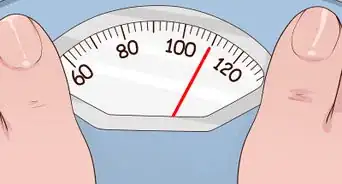





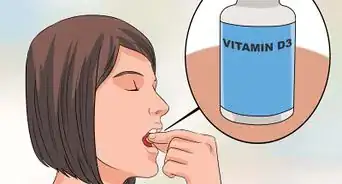

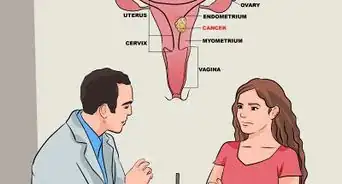









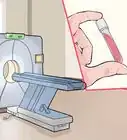
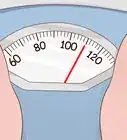



































Medical Disclaimer
The content of this article is not intended to be a substitute for professional medical advice, examination, diagnosis, or treatment. You should always contact your doctor or other qualified healthcare professional before starting, changing, or stopping any kind of health treatment.
Read More...